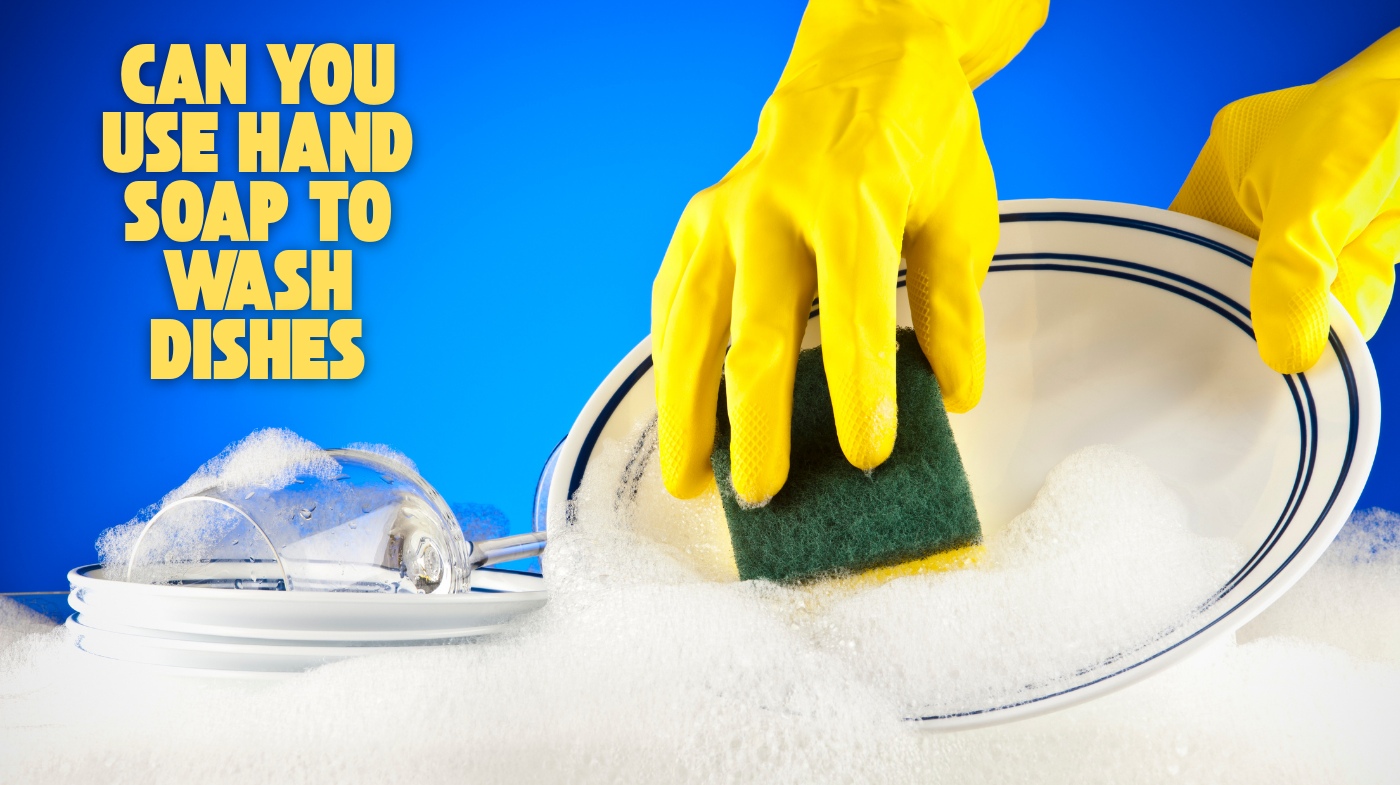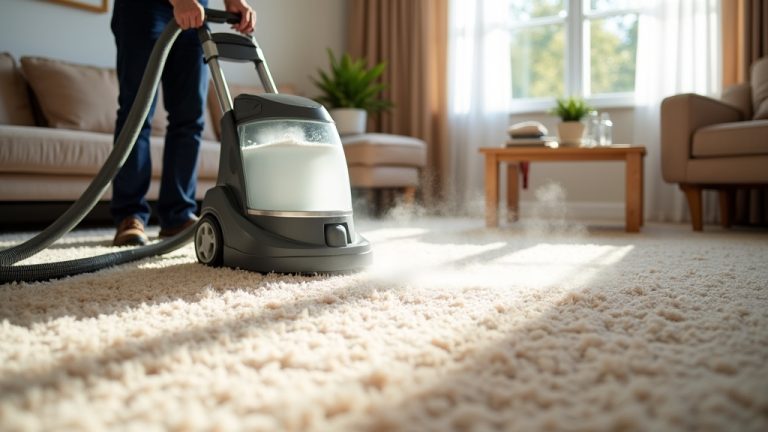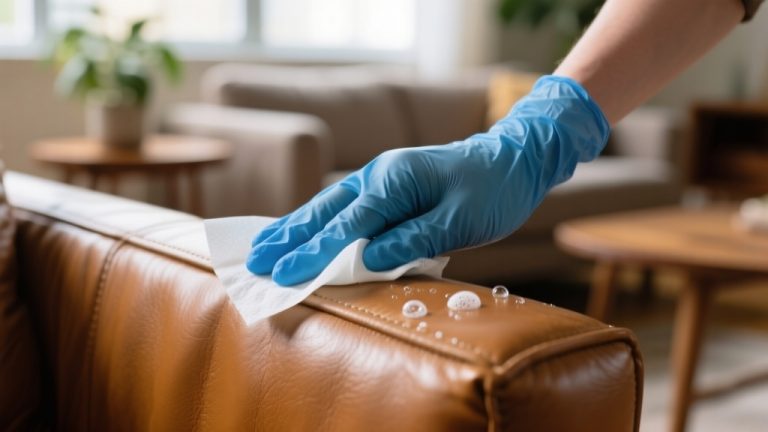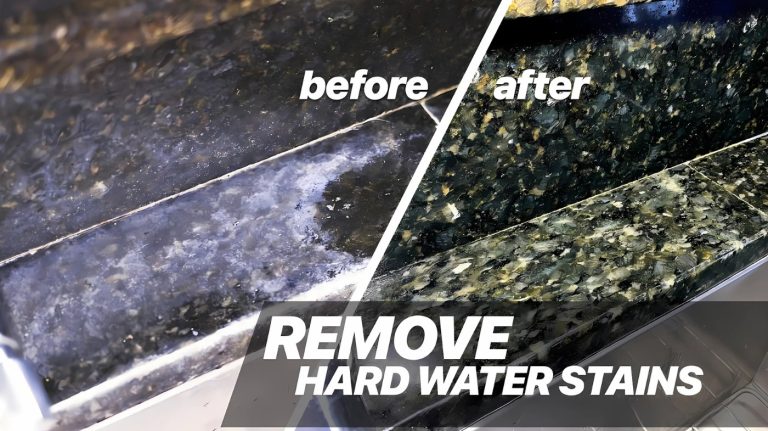Can You Use Hand Soap to Wash Dishes? Surprising Facts
You can use hand soap to wash dishes if you’re in a pinch, but it won’t clean as well as dish soap. Hand soap lacks strong grease-cutting agents, so you’ll need extra scrubbing, and residues could linger, possibly causing irritation if ingested.
It’s gentler on your skin, though, so it won’t dry your hands out like dish soap might. If you want to understand the differences and safer alternatives, there’s more worth exploring.
Key Takeaways
- Hand soap can clean lightly soiled dishes but is less effective at removing grease and baked-on food than dish soap.
- Using hand soap on dishes risks leaving residues, which may cause digestive irritation or nausea if ingested.
- Hand soap contains moisturizing agents and fragrances not designed for food contact, potentially causing health and safety concerns.
- For occasional use, hand soap requires more scrubbing and thorough rinsing to avoid oily or sticky film on dishes.
- Proper dishwashing without dish soap involves hot water, scrubbing, soaking, and natural cleaners like baking soda or vinegar.
Key Differences Between Hand Soap and Dish Soap
Although you might consider using hand soap to wash dishes in a pinch, it’s important to understand that hand soap and dish soap differ markedly in formulation, intended use, and cleaning power.
Dish soap contains strong surfactants and degreasers designed to cut through grease and food residue, often including enzymes for stubborn particles. In contrast, hand soap uses milder, skin-friendly ingredients like glycerin and fatty acids to moisturize and protect your skin. Dish soap is an integral part of domestic and commercial kitchen cleaning routines.
Dish soap’s thicker consistency and foaming action enhance grease removal, while hand soap is thinner and rinses off easily, lacking grease-cutting agents.
Importantly, dish soap targets kitchen utensils, whereas hand soap focuses on skin cleansing. Using hand soap for dishes risks inadequate cleaning and residue.
Effectiveness of Hand Soap for Cleaning Dishes
When you need to wash dishes but only have hand soap on hand, you can expect it to remove some food particles, especially if the dishes are lightly soiled.
Hand soap’s thinner consistency and lower foaming capacity mean you’ll likely need more scrubbing and multiple washes for thorough cleaning.
It’s less effective at breaking down grease and baked-on food because it lacks the specialized surfactants found in dish soap. You might notice a greasy film or residue left behind, especially on oily cookware.
Using hot water can improve hand soap’s performance, but it still falls short compared to dish soap designed for tackling food residues. Hand soap is formulated primarily to nourish and moisturize skin rather than to cut through grease and food debris.
For occasional use, hand soap works in a pinch, but it’s not a reliable long-term substitute for effective dish cleaning. Proper disinfection and odor neutralization typically require stronger cleaning agents than hand soap can provide.
Health and Safety Implications of Using Hand Soap on Dishes
If you use hand soap to wash dishes, you risk leaving behind residues that can irritate your digestive system when ingested.
Hand soaps often contain fragrances, moisturizers, and antibacterial agents not designed for food contact, increasing potential health risks if residues remain. Some of these ingredients, such as fragrances and antibacterial agents, may also cause skin irritation or act as endocrine disruptors.
Unlike dish soaps, which are formulated and regulated to be safe for occasional ingestion, hand soap safety for this use is uncertain. Ingesting soap residue may cause nausea, abdominal pain, or diarrhea, especially if rinsing is insufficient.
Additionally, residues from soaps not intended for dishes may leave oily or sticky residues that are difficult to rinse off and potentially harmful.
Over time, repeated exposure to these chemical residues could heighten gastrointestinal discomfort or affect sensitive individuals such as children or the elderly.
To protect your health, it’s best to use dish soap for cleaning dishes and ensure thorough rinsing to minimize any harmful residue ingestion.
Skin Impact When Using Hand Soap for Dishwashing
Since hand soaps are formulated to protect and hydrate your skin, using them for dishwashing can be gentler on your hands than typical dish detergents.
Hand soaps often contain moisturizing agents and plant-based ingredients that help preserve your skin’s natural oils, reducing dryness and irritation.
Unlike harsh dish soaps with synthetic surfactants and drying alcohols, hand soaps maintain your skin’s barrier, preventing cracking and roughness.
Many dish soaps use synthetic surfactants like sodium lauryl sulfate, which are known to cause skin irritation, making hand soaps a milder alternative for sensitive skin due to their gentler surfactants synthetic surfactants.
If you have sensitive skin or eczema, you’ll benefit from hand soaps that exclude fragrances, dyes, and irritants common in dish detergents.
While hand soap isn’t designed specifically for dishes, it minimizes skin damage during washing. However, it is important to note that harsh chemicals like those found in oven cleaners can cause chemical burns and should be avoided in all household cleaning tasks.
To protect your hands further, remember to moisturize immediately after washing to keep your skin soft and healthy.
Practical Tips for Washing Dishes Without Dish Soap
Although dish soap is the go-to choice for cleaning dishes, you can effectively wash your cookware using natural alternatives and smart techniques.
Start by pre-rinsing with hot water and scrubbing brushes to remove food debris. Use a baking soda paste as a mild abrasive to tackle grime. Baking soda is a versatile cleaning agent that is non-toxic and safe for the environment.
Then soak dishes in a diluted white vinegar solution to sanitize and cut grease. Avoid pure vinegar to prevent damage to metals or stone.
Combine these methods sequentially—scrub with baking soda, soak in vinegar, then rinse thoroughly with hot water. Employ abrasive tools like sponges or dish brushes for enhanced cleaning. Remember, hot water itself aids grease breakdown and sanitization.
Frequently Asked Questions
Can Hand Soap Damage Dishwashing Machines if Used Regularly?
Yes, using hand soap regularly in your dishwasher can cause damage. Hand soap creates excessive suds that can overflow and disrupt sensors, leading to error codes.
Over time, residue buildup may clog filters and spray arms, impairing performance and potentially corroding internal parts. To protect your dishwasher, stick to detergents designed specifically for it, ensuring efficient cleaning and avoiding costly repairs or voided warranties.
Does Hand Soap Cause Faster Wear on Sponges or Scrubbers?
Hand soap doesn’t cause faster wear on sponges or scrubbers; in fact, it’s generally gentler because it has milder surfactants.
However, since hand soap isn’t as effective at cutting grease, you’ll likely scrub more vigorously or longer, which increases mechanical wear.
Is Hand Soap Effective for Cleaning Baby Bottles and Pacifiers?
Yes, you can effectively clean baby bottles and pacifiers using mild dish soap. Just make sure the soap is free of dyes, fragrances, and harsh chemicals.
Use warm water and dedicated brushes to scrub all parts thoroughly, then rinse completely to remove any soap residue.
Proper cleaning and drying prevent bacteria growth and keep your baby safe. Avoid antibacterial hand soaps, as they’re not designed for infant items and might cause irritation.
Can Hand Soap Be Safely Used for Cleaning Fruits and Vegetables?
No, you shouldn’t use hand soap to clean fruits and vegetables. The chemicals can be absorbed by produce, posing health risks and altering taste.
Instead, rinse your produce thoroughly under cool running water. For firmer items, use a clean brush.
If you want extra cleaning power, soak in a diluted vinegar solution and rinse well afterward.
Stick to these safe methods to keep your produce clean without harmful residues.
How Does Hand Soap Affect Water Hardness During Dishwashing?
Hand soap doesn’t change water hardness itself, but it reacts with calcium and magnesium ions in hard water. This reaction forms soap scum, reducing soap’s cleaning power and lather.
You’ll notice more residue on dishes and need more soap to clean effectively. To prevent this, you might consider water softeners or switching to detergents designed for hard water to avoid buildup and improve dishwashing results.
Protect Your Health and Dishes: Choose the Right Soap
You might wonder if hand soap can replace dish soap when washing dishes. While hand soap can remove some grease, it’s not formulated to break down food residues or sanitize like dish soap does.
Using hand soap regularly could leave residues or affect your skin. For safe, effective cleaning, stick to dish soap or try practical alternatives like baking soda. That way, your dishes get truly clean without compromising health or skin.







